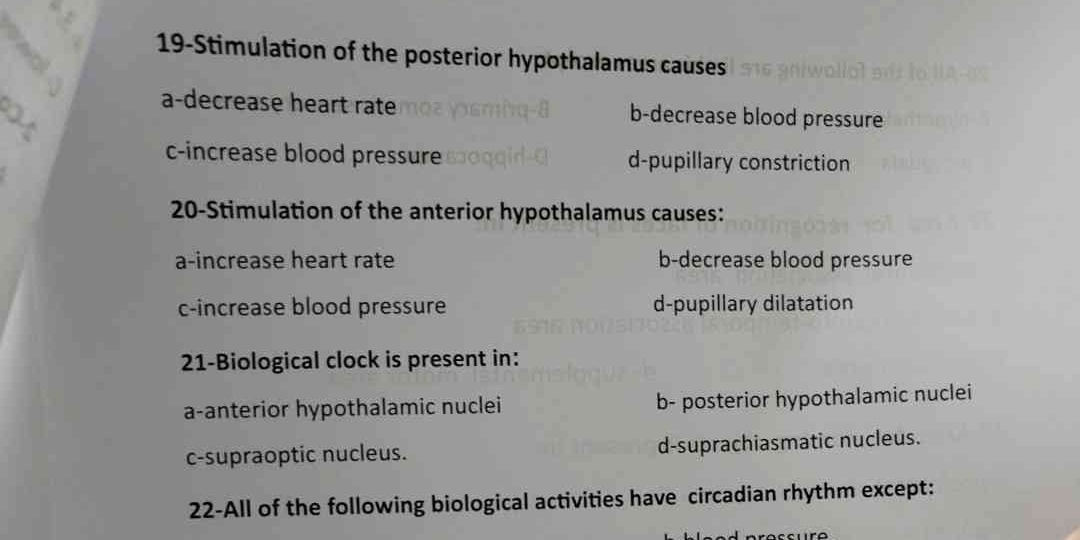19. Stimulation of the posterior hypothalamus causes: a. decrease heart rate b. decrease blood pressure c. increase blood pressure d. pupillary constriction 20. Stimulation of the... 19. Stimulation of the posterior hypothalamus causes: a. decrease heart rate b. decrease blood pressure c. increase blood pressure d. pupillary constriction 20. Stimulation of the anterior hypothalamus causes: a. increase heart rate b. decrease blood pressure c. increase blood pressure d. pupillary dilatation 21. Biological clock is present in: a. anterior hypothalamic nuclei b. posterior hypothalamic nuclei c. suprachiasmatic nucleus d. 22. All of the following biological activities have circadian rhythm except: a. blood pressure.

Understand the Problem
The question is asking about the physiological effects of stimulating certain areas of the hypothalamus and the biological clock's presence in specific nuclei. It contains multiple choice questions related to neurobiology and physiology.
Answer
19. Increase blood pressure 20. Decrease blood pressure 21. Suprachiasmatic nucleus 22. Blood pressure
- Increase blood pressure
- Decrease blood pressure
- Suprachiasmatic nucleus
- Blood pressure
Answer for screen readers
- Increase blood pressure
- Decrease blood pressure
- Suprachiasmatic nucleus
- Blood pressure
More Information
Stimulation of the posterior hypothalamus generally increases blood pressure due to sympathetic activation. The anterior hypothalamus is associated with parasympathetic responses, which can decrease blood pressure. The suprachiasmatic nucleus regulates circadian rhythms, and blood pressure can vary throughout the day, but it doesn't have a true circadian rhythm.
Sources
- Posterior Hypothalamus - an overview | ScienceDirect Topics - sciencedirect.com
- Hypothalamus - Wikipedia - en.wikipedia.org
AI-generated content may contain errors. Please verify critical information